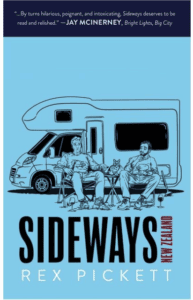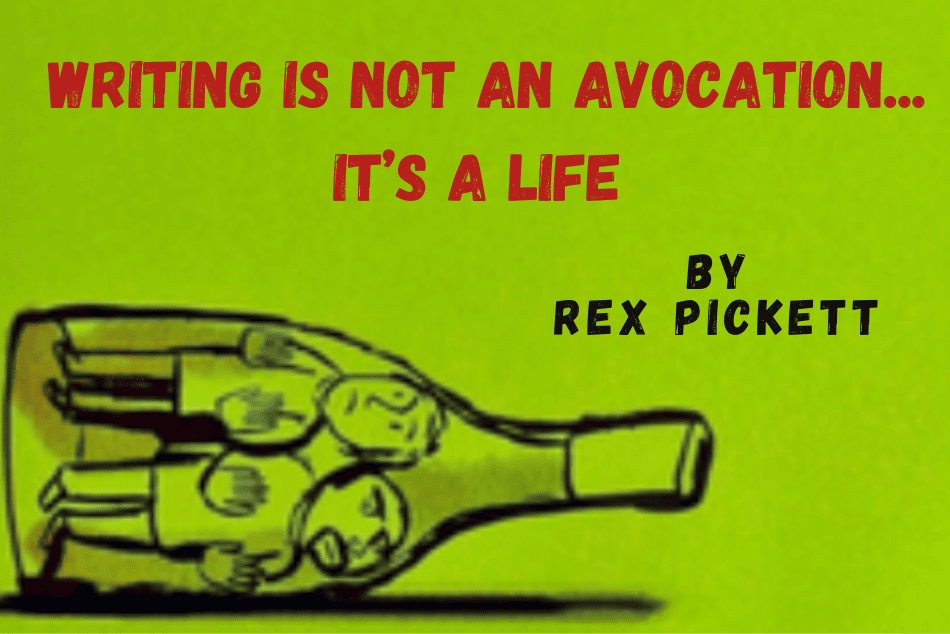I never begin writing a novel without knowing my ending. An ending, according to Chekhov, is the lantern. When I’m in the dark that lantern, however dimly, is always burning. It’s my lodestar, it’s what I navigate by. Without it I’m always in fear I will end up out on tumultuous seas clinging to a busted mast, my compass and sextant lost overboard. I don’t know how I’m going to get to that ending, but I know I’m destined to get there. Having an ending before writing forms the trajectory of all my work. It’s an adumbration of the three acts that always emerge out of my writing.
Three years ago I was invited to journey to the country of New Zealand to bring my iconic Sideways character Miles Raymond to find a sequel novel. When the pandemic restrictions finally lifted, I jetted there from L.A. In winter. I knew my ending because I had already ideated my beginning. Miles (Paul Giamatti in the Oscar-winning movie) receives an email from a woman he hasn’t heard from in 25 years. It stabs him in the heart. It sets in motion the idea of a road trip. That road trip, I decided, would be a book tour, disembarking from the South Island—where Miles is contentedly bivouacked—and heading north to the North Island. I curse the wonderful woman who had the idea that the book tour should be in a camper van.
Now, I had no choice but to get my hands on a camper van and take that trip. There was no way I was going to write Sideways New Zealand without that camper van trip. And then another friend suggested Miles take that trip with his best friend Jack. So, now, before even flying to New Zealand, I had Miles on a book tour in a camper van with his lifelong buddy Jack in a reunion of sorts of their Sideways adventure. But why are they in a camper van and not in a car? But when I floated the idea to friends, they laughed out loud at the comical image. Now, I had a creative obligation to make that work. Did the frugal Kiwi publisher of Miles’s new novel pull a bait-and-switch on them? Conflict.
Ideas Beget Ideas
Miles and Jack in a camper van brings me conflict. They’re also opposite personalities: Miles is a classic introverted thinking type and Jack is a dyed-in-the-wool extroverted feeling type. Opposites equals conflict equals drama equals comedy equals resolution. That’s the only formula I adhere to. But, I needed something else. Miles would definitely have a publicist on this, what unfolds as, a book tour from hell. Because New Zealand has a sizable Māori population I wanted Miles’s publicist to be young, female, and Māori. But I wasn’t going to write a young Māori woman character into my novel without finding someone to model her after. I got lucky and found a young actress who agreed to be the model for that character.
But I wanted/needed something else. I hadn’t had a pet since I was a child. Through a series of circumstances, I was given a special needs cat. His name is Max. He had problems with his back legs. He required an oral supplement every night. I fell in love with Max. I cared for him. At night when I would often wake at four a.m. I would pick up Max and let him purr contentedly on my chest. When I left for New Zealand I had to surrender him to the woman who gifted him to me, but I missed him so much I gave Miles a special needs cat. Max unwittingly became a major character.
Characters Emerge Out of Real Life
I will not begin writing until I can hear the voices of my characters. I write autobiographically in the first person so I know my own voice intimately. I know the voice of Jack because he’s based on a once close friend of mine. I know my cat Max, how he feels, what his needs are. I got to know the Māori publicist. In the course of taking the trip, I got to know the character of my setting, New Zealand. I got to know what it was like to drive, and live, in a six-ton camper van.
Opposites equals conflict equals drama equals comedy equals resolution.
Writing, for me, is a lot like cooking. Purchase the best ingredients you can, work off of tried-and-true techniques, but improvise wildly. Know that the ending is going to be a treat for your guests. Be critical of your work so you can improve it next time.
When I had my ingredients (my characters, the outline of my story), when I had taken the trip in the camper van, and all the experiences that happened on that trip were digested, I was ready to write. I wrote the first draft in six weeks. I like to let it come out in a veritable cataract of creativity. I am decidedly of the school that, in the beginning, quantity over quality is the more productive route. I often wrote 2,500 to 3,000 words a day. I like to write as if I’m living my novels in real time, as if my imagination is unspooling a movie that can’t be stopped. I write character- and dialogue-driven novels. This is owing to my extensive background in screenwriting and indie filmmaking (I’ve directed two feature films in my past). I also prefer character- and dialogue-driven stories because I know there’s a chance they’ll have film, and even theater, potential down the road. Not only was my Sideways novel adapted into an Oscar-winning movie, but it’s also been successfully staged all over the world in a play I adapted from my novel. I prefer to write stories with real, lived-in characters that have a second chance of broader appeal in other mediums. My Sideways play just opened in Riga, Latvia, to rousing success. I like to believe that’s because I wrote a story that was malleable to other mediums.
Novels Are Journeys
I won’t begin writing until I have a reasonable adumbration of that journey; it gives me a narrative spine, like riding the back of a great anaconda. But I also won’t begin writing until I have an emotional component. The email Miles receives out of the blue results in a huge emotional payoff in the ending I had before I began writing Sideways New Zealand. And in Max came I found an emotional component in his character. My Māori publicist Hana not only allowed me to lower myself geologically into the Kiwi culture, but she also brought me a number of narrative gems. Miles and Jack, as usual, delivered the comedy, the heart. There aren’t many comedic novels. You need conflict. I found it with Jack’s new girlfriend who crashes the book tour party. In many ways, most of my stories are written in my head before I undertake the journey to fill in the locations, find the detours that take me to new places I hadn’t imagined. There’s a comfort in knowing, and an excitement in not knowing.
I’m not advocating for the banality of writing what you know, but I am arguing aspiring writers should draw as much as possible on experience and real life. It lends verisimilitude to your work. I instinctually know, from experience, what sounds like it might work and pay me dividends fictionally. Then I just have to make them work. From that point, I am shameless when it comes to fictionalizing. Whatever heightens the comedy, the drama, the essential conflicts.
Writing for me is about going to the places my characters are going to go to in my fiction, molding a game plan. I will not begin a novel without some sense of the bigger picture, all the way to the end. But once I have those ingredients, once I have everything I need to produce a sumptuous meal, the pleasure is in the hard work of the cooking. As Salman Rushdie advised: “Put your butt in the chair.” I would amend that: put your butt in the chair when you’re ready.
There’s a comfort in knowing, and an excitement in not knowing.
I highly recommend never showing a work-in-progress to anyone, even your most trusted friends. It’s better to finish a project and fail than to abort it and start something new because of being wounded by some so-called constructive criticism. Remember, no criticism is above criticism itself; just because someone says it doesn’t make it so. Let your own instinct, for better or ill, be your guide until, at last, you’ve reached the point of diminishing returns and have no choice but to go to the world … of agents and publishers. If it makes you feel better, my Sideways novel garnered over 200 rejection letters before the unpublished manuscript was discovered by Alexander Payne. Two decades later it’s a hit play in Riga, Latvia.
 Rex Pickett is a screenwriter and author who is most well known for writing Sideways, the book that became one of the most critically acclaimed and highest-grossing comedy films in Hollywood history. His Sideways sequel Vertical won the
Rex Pickett is a screenwriter and author who is most well known for writing Sideways, the book that became one of the most critically acclaimed and highest-grossing comedy films in Hollywood history. His Sideways sequel Vertical won the  Gold Medal for Popular Fiction from the Independent Publisher Book Awards. Pickett resides in Del Mar, California.
Gold Medal for Popular Fiction from the Independent Publisher Book Awards. Pickett resides in Del Mar, California.





